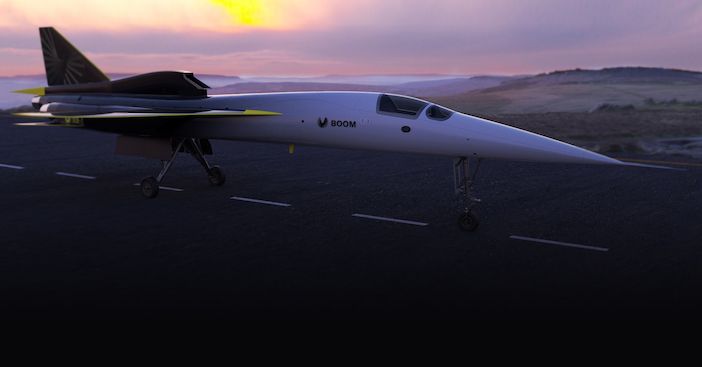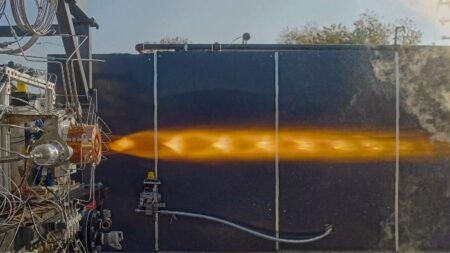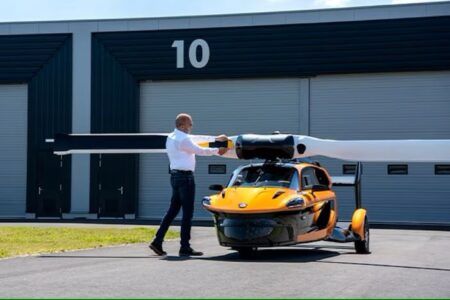US-based aerospace developer Boom Supersonic is to use sustainable aviation fuel and carbon-offsetting in its XB-1 test program, becoming the first aircraft OEM to fully embrace sustainable aircraft testing, the company claims.
The XB-1 Baby Boom is a supersonic demonstrator aircraft designed to prove in flight the key technologies and design for Boom’s proposed Overture commercial supersonic airliner. The Overture will have a cruise speed Mach 2.2 (2,300 km/h), seat up to 55 passengers with a range of 8,300km and is planned to enter into service in 2025
Flight testing of the XB-1 is expected to start this summer after being delayed from last year. The XB-1 is a third of the size of Overture, will carry two people and is designed to maintain Mach 2.2, with a range of 1,900km and is powered by three 4,300 lbf GE CJ610 engines.
Boom successfully conducted a series of ground tests in January last year, running the CJ610 engines with an 80% blend of sustainable aviation fuels (SAF). The company’s carbon neutral commitment covers all ground and flight testing to be performed over the lifetime of the XB-1 program.
“Since Boom’s founding, we’ve been on a mission to make the world more accessible through supersonic travel,” said Blake Scholl, founder and CEO of Boom. “With our commitment to a carbon-neutral XB-1 test program, we’re laying the groundwork for a sustainable supersonic future with Overture.”
Boom’s sustainable jet fuel will be supplied by Prometheus Fuels, a company which launched in 2018. According to Prometheus its technology is able to economically remove carbon dioxide from the air and its process uses renewable electricity.
Raymond Russell, Boom’s head of sustainability said, “As a new entrant in aerospace, Boom is making sustainability a core tenet of our aircraft development program. Thanks to today’s technology, supersonic travel is economically viable, and we are proud to ensure that it’s environmentally friendly as well.”
For an in-depth analysis of XB-1’s test program go here





